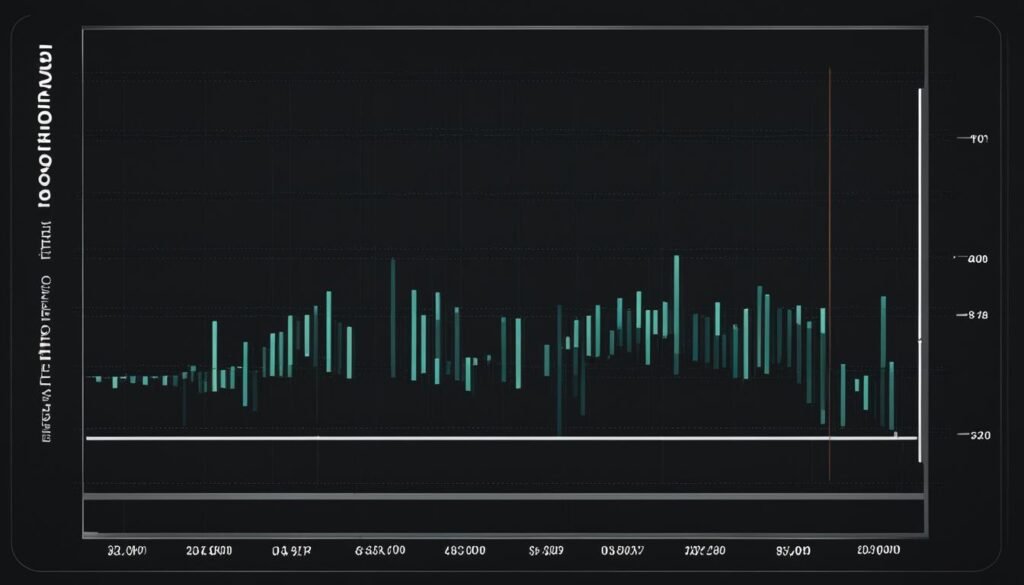Gaining and losing weight is a common journey many people embark on. However, the frustrating cycle of yo-yo dieting, where weight is repeatedly lost and regained, can feel like an uphill battle. It’s important to understand that weight regain may not be entirely your fault. Our bodies naturally strive for a state of balance, known as homeostasis, and aim to maintain a weight that is familiar and comfortable.
Breaking free from the yo-yo dieting cycle requires resilience and a commitment to sustainable weight management strategies. By understanding the reasons behind weight regain and adopting healthy habits, we can achieve long-lasting success in our weight loss and maintenance goals.
Key Takeaways
- Yo-yo dieting, also known as weight cycling, refers to the pattern of unintentional weight gain followed by intentional weight loss. It is a common phenomenon.
- Fad diets contribute to the prevalence of yo-yo dieting, as they often promise quick results but are not designed for long-term change.
- The impact of yo-yo dieting on health is debated among researchers, with some studies suggesting negative effects on metabolic function, heart health, and mental well-being.
- The primary reason behind yo-yo dieting is the body’s natural response to calorie restriction, which lowers metabolism and leads to weight regain.
- To break free from yo-yo dieting, focus on adopting sustainable habits such as balanced eating, regular exercise, setting achievable goals, and seeking professional support.
What is Yo-Yo Dieting — and How Common Is It, Really?
Yo-yo dieting, also known as weight cycling, is a common phenomenon that involves a pattern of unintentional weight gain followed by intentional weight loss. This seesaw effect of weight fluctuations can be frustrating for individuals trying to achieve their desired weight and can have negative effects on both physical and mental health.
Research shows that yo-yo dieting is more prevalent than one might think. In fact, studies indicate that approximately 80% of people who lose a significant amount of weight regain it within a year. This fluctuation in weight can be disheartening and discouraging, making it challenging to maintain long-term weight management.
A major contributing factor to the prevalence of yo-yo dieting is the rise of fad diets. These diets often promise quick results but are not designed for sustainable and long-term change. They typically involve restrictive eating patterns and severe calorie restrictions, which can lead to rapid weight loss. However, these extreme measures are not feasible or maintainable in the long run, causing individuals to revert back to their previous eating habits and resulting in weight regain.
It’s important to note that yo-yo dieting doesn’t just impact physical health; it can also take a toll on mental well-being. The constant cycle of weight loss and weight regain can lead to feelings of frustration, disappointment, and decreased self-esteem. This emotional roller coaster can create an unhealthy relationship with food and body image.
To break free from the yo-yo dieting cycle, it’s essential to focus on sustainable weight management strategies that promote healthy eating, regular physical activity, and a positive mindset. By adopting a balanced approach to nutrition and embracing lifestyle changes rather than quick fixes, individuals can achieve long-term success in maintaining a healthy weight.
The Impact of Yo-Yo Dieting on Health
The fluctuation in weight brought about by yo-yo dieting can have detrimental effects on health. It can lead to metabolic dysfunction, cardiovascular issues, and an increased risk of chronic diseases. Additionally, yo-yo dieting can disrupt the body’s natural hormone balance, making it more difficult for individuals to achieve and maintain their desired weight.
Is Yo-Yo Dieting Bad for Your Health? Here’s What the Research Suggests

The impact of yo-yo dieting on health has been a subject of scientific debate. While some experts argue that any weight loss is beneficial, others have found negative effects associated with weight fluctuations.
Several studies have indicated that yo-yo dieting, with its repetitive pattern of weight loss and regain, can increase the risk of metabolic dysfunction, heart disease, and stroke. These weight fluctuations disrupt the body’s natural balance and can have detrimental effects on physical health.
Furthermore, yo-yo dieting may also impact mental health. Research has shown that individuals who engage in yo-yo dieting may experience depressive symptoms and struggle with their overall well-being.
“Weight cycling can take a toll on both physical and mental health, with potential consequences such as metabolic dysfunction, heart disease, stroke, and depressive symptoms.” – Dr. Sarah Johnson, Nutrition Specialist
While these findings shed light on the potential risks of yo-yo dieting, it’s important to note that more research is necessary to fully understand the long-term effects on overall health (check this post out). Every individual is unique, and the impact of yo-yo dieting can vary depending on various factors such as genetics, lifestyle, and dieting history.
| Impact of Yo-Yo Dieting | Physical Health | Mental Health |
|---|---|---|
| Increased risk of metabolic dysfunction | Depressive symptoms | |
| Greater likelihood of heart disease | Lower self-esteem and body image dissatisfaction | |
| Elevated risk of stroke | Increase in anxiety levels |
To ensure the well-being of individuals struggling with yo-yo dieting, it is crucial to focus not only on weight loss but also on sustainable lifestyle changes. Adopting a balanced approach to eating, incorporating regular physical activity, and seeking support from healthcare professionals can contribute to achieving both physical and mental well-being.
Understanding the potential risks associated with yo-yo dieting can empower individuals to make informed decisions about their weight management journey. It is essential to prioritize long-term health goals and implement sustainable strategies to maintain a healthy lifestyle.
The Scientific Reason Why You’re Yo-Yo Dieting in the First Place
The primary reason behind yo-yo dieting is the body’s natural response to calorie restriction. When you restrict calories, your body lowers its metabolism to conserve energy, making it harder to lose weight and easier to regain it. Additionally, weight loss leads to a decrease in muscle mass, which further slows down metabolism. This combination of lowered metabolism and reduced muscle mass contributes to the cycle of yo-yo dieting.
Calorie restriction triggers a survival mechanism in the body, slowing down the resting metabolic rate (RMR). The RMR refers to the number of calories your body burns at rest to support essential functions like breathing and circulation. When calories are restricted, the body adapts by conserving energy, leading to a decrease in the RMR.
Moreover, weight loss is not solely attributed to the loss of body fat. It often involves a decrease in muscle mass. Muscle mass plays a significant role in metabolism, as it requires more energy to maintain compared to fat tissue. Therefore, the reduction in muscle mass following weight loss further contributes to a lower overall metabolism.
The combination of a lowered RMR and reduced muscle mass creates an unfavorable environment for long-term weight management. When you resume normal eating habits after a period of calorie restriction, your body is primed to store energy as fat to prepare for future periods of deprivation. This leads to weight regain and perpetuates the cycle of yo-yo dieting.
Understanding the scientific factors behind yo-yo dieting allows us to approach weight management with a more informed perspective. By focusing on strategies that promote sustainable weight loss, such as maintaining muscle mass through resistance training and adopting a balanced approach to calorie intake, we can break free from the cycle of yo-yo dieting (see my post here).
To visualize the link between yo-yo dieting, metabolism, and weight regain, consider the following table:
| Factors | Effect |
|---|---|
| Calorie Restriction | Reduces Resting Metabolic Rate (RMR) |
| Weight Loss | Decreases Muscle Mass |
| Lowered RMR + Reduced Muscle Mass | Promotes Weight Regain |
How to Get Back on Track With Your Weight Loss Plan

Breaking the cycle of yo-yo dieting requires a shift in mindset and a focus on long-term, sustainable habits. Instead of following restrictive diets, it’s important to adopt a balanced approach to eating and to avoid cutting out entire food groups. Making small, achievable goals and seeking support from professionals such as nutritionists or dieticians can also greatly improve success in weight management. Regular exercise, both during weight loss and maintenance phases, is crucial for maintaining weight loss and overall health.
When it comes to healthy eating, aim for a well-rounded diet that includes plenty of fruits, vegetables, whole grains, lean proteins, and healthy fats. Avoid extreme calorie restrictions and fad diets that promise quick results but are not sustainable in the long run. Remember, slow and steady progress is more likely to lead to lasting weight loss.
Seeking support from professionals can provide you with personalized guidance and accountability. A nutritionist or dietitian can help you create a meal plan that suits your individual needs and lifestyle. They can also educate you on portion sizes, reading food labels, and making healthier choices.
In addition to a healthy eating plan, incorporating regular exercise into your routine is essential for successful weight management. Engaging in activities that you enjoy, such as walking, swimming, or dancing, can make exercise more enjoyable and sustainable in the long term. Aim for a combination of cardiovascular exercises and strength training to promote weight loss and maintain muscle mass.
“The discipline you learn from fitness and nutrition will spill over into other areas of your life.” – Venus Williams
Remember, getting back on track with your weight loss plan is a journey that requires patience and perseverance. Set realistic goals, track your progress, and celebrate your achievements along the way. By adopting a balanced approach to eating, seeking support, and incorporating regular exercise into your routine, you can break free from the cycle of yo-yo dieting and achieve sustainable weight management.
| Tip | Description |
|---|---|
| 1 | Focus on portion control and listen to your body’s hunger and fullness cues. |
| 2 | Include a variety of nutrient-dense foods in your diet, such as fruits, vegetables, whole grains, lean proteins, and healthy fats. |
| 3 | Stay hydrated by drinking plenty of water throughout the day. |
| 4 | Engage in regular physical activity that you enjoy, aiming for a combination of cardiovascular exercises and strength training. |
| 5 | Seek support from professionals, such as nutritionists or dieticians, to create a personalized plan and receive guidance throughout your weight loss journey. |
Causes of the Yo-Yo Effect and How to Avoid It

The yo-yo effect, also known as yo-yo dieting, is often caused by unhealthy weight reduction methods that promise quick results but fail to provide sustainable, long-term changes. These methods, such as extreme calorie restriction or the use of weight loss pills, may initially lead to weight loss, but they ultimately result in weight regain.
It is important to understand that the key to avoiding the yo-yo effect lies in focusing on reducing body fat while maintaining muscle mass. This can be achieved by adopting healthy eating habits and embracing a balanced diet with a reduced calorie intake. Skipping meals should be avoided, as it can disrupt your metabolism and lead to overeating later on.
In order to prevent the yo-yo effect and ensure successful weight management, regular exercise is crucial. Engaging in physical activity not only helps with weight loss but also contributes to overall health and well-being. Additionally, monitoring your dietary habits and making adjustments as needed can be beneficial for long-term weight management.
To summarize, unhealthy weight reduction methods, such as extreme calorie restriction and the use of weight loss pills, can lead to the yo-yo effect. To avoid this cycle, it is essential to focus on reducing body fat while maintaining muscle mass, avoid skipping meals, and follow a balanced diet with a reduced calorie intake. Regular exercise and dietary self-monitoring are also important strategies for preventing the yo-yo effect and achieving sustainable weight management.
| Causes of the Yo-Yo Effect | How to Avoid the Yo-Yo Effect |
|---|---|
| Unhealthy weight reduction methods (e.g., extreme calorie restriction, weight loss pills) | Focus on reducing body fat while maintaining muscle mass |
| Avoid skipping meals | |
| Eat a balanced diet with a reduced calorie intake | |
| Engage in regular exercise | |
| Monitor your dietary habits and make adjustments as needed |
Weight Reduction Without the Yo-Yo Effect

When it comes to achieving weight reduction without experiencing the yo-yo effect, there are key strategies that can help you reach your goals. The yo-yo effect, characterized by weight regain after initial loss, can be frustrating and demotivating. However, focusing on certain factors can greatly minimize the likelihood of this cycle.
To start, it’s essential to prioritize reducing body fat while maintaining muscle mass. This can be achieved through a combination of a balanced diet and regular physical activity. By consuming a variety of low-calorie foods and avoiding high-calorie and fatty diets, you can create a calorie deficit that promotes weight loss. It’s important to note that extreme calorie restriction should be avoided, as it can lead to muscle loss and hinder long-term success.
Incorporating physical activity into your routine is also crucial for sustainable weight reduction. Engaging in regular exercise not only aids in burning calories but also helps build and maintain muscle mass. Aim for a mix of cardiovascular exercises, such as running or cycling, and strength training exercises like weightlifting or resistance training. Increasing the duration and consistency of your workouts over time can contribute to long-term weight management and the prevention of the yo-yo effect.
In addition to these practices, adopting healthy eating habits and maintaining a steady calorie intake are vital. By focusing on nourishing your body with nutritious foods, you can optimize your overall well-being and support sustainable weight loss (check this post out). Seek guidance from a healthcare professional or registered dietitian to develop a personalized meal plan that meets your individual needs and goals.
Overall, the key to weight reduction without the yo-yo effect lies in finding a balance between calorie intake and physical activity. By following a balanced diet, exercising regularly, and avoiding extreme measures, you can achieve sustainable weight loss and maintain a healthy lifestyle in the long run (see my post here).
Tips for Weight Reduction Without the Yo-Yo Effect:
- Focus on reducing body fat while maintaining muscle mass
- Consume a variety of low-calorie foods
- Avoid high-calorie and fatty diets
- Engage in regular physical activity, including both cardiovascular and strength training exercises
- Avoid extreme calorie restriction
- Seek guidance from a healthcare professional or registered dietitian
What Role Does Appetite Control Play in Beating Yo-Yo Dieting and Weight Regain?
Understanding yoyo dieting appetite control is crucial in overcoming weight regain. When appetite is not properly managed, it can lead to overeating and cravings, making it harder to maintain weight loss. By learning how to control appetite through balanced eating and mindful choices, yo-yo dieting can be avoided.
The Negative Effects of Yo-Yo Dieting on Health

Yo-yo dieting can have detrimental effects on various aspects of health. It triggers a cascade of reactions in the body that can lead to negative health outcomes.
Inflammation and its Impact on Heart Health
One of the key health effects of yo-yo dieting is increased inflammation in the body. Inflammation is the body’s natural response to injury or illness, but chronic inflammation can have serious consequences on heart health. Studies have shown that yo-yo dieting can contribute to elevated levels of inflammatory markers, such as C-reactive protein (CRP). This chronic low-grade inflammation can damage blood vessels, leading to a higher risk of heart disease, including angina, heart attacks, and strokes.
Insulin Resistance and its Association with Yo-Yo Dieting
Yo-yo dieting has also been linked to an increased risk of insulin resistance. Insulin is a hormone that helps regulate blood sugar levels. When the body experiences weight fluctuations due to yo-yo dieting, it can disrupt the balance of insulin and lead to insulin resistance. Insulin resistance occurs when the body’s cells no longer respond effectively to insulin, causing blood sugar levels to rise. Over time, this can increase the risk of type 2 diabetes and cardiovascular disease.
Mental Health Effects of Yo-Yo Dieting
The impact of yo-yo dieting extends beyond physical health and also affects mental well-being. Studies have shown a correlation between yo-yo dieting and depressive symptoms. The constant cycle of weight loss and regain can take a toll on self-esteem, body image, and overall mental health. It can lead to feelings of frustration, guilt, and even contribute to the development of eating disorders.
While the short-term effects of yo-yo dieting on mental health are apparent, the long-term consequences are still being studied. Research is ongoing to understand the complex relationship between yo-yo dieting and mental health.
Risks and Consequences of Yo-Yo Dieting

Yo-yo dieting, also known as weight cycling, can have several risks and consequences for your health. It’s important to be aware of these potential outcomes before embarking on any dieting journey. Let’s explore some of the key risks associated with yo-yo dieting:
1. Impact on Heart Health
Yo-yo dieting has been linked to an increased risk of heart problems, including angina, heart attacks, and strokes. Rapid weight loss followed by weight regain can put stress on the cardiovascular system, leading to potential long-term damage.
2. Formation of Gallstones
Another risk of yo-yo dieting is the formation of gallstones. When you lose weight rapidly, the liver releases excess cholesterol into the bile, which can lead to the development of gallstones. These small, hardened deposits can cause severe pain and may require surgical intervention.
3. Impact on the Gut Microbiome
The gut microbiome, a complex community of microorganisms in the digestive tract, plays a crucial role in overall health. Yo-yo dieting can disrupt the balance of the gut microbiome, potentially leading to digestive issues, inflammation, and other health problems. Maintaining a stable and diverse gut microbiome is essential for optimal well-being.
4. Nutrient Deficiencies
When you constantly cycle between weight loss and weight regain, it can be challenging to maintain a balanced and nutrient-rich diet. Yo-yo dieting often involves restrictive eating patterns and eliminating certain food groups, which can lead to nutrient deficiencies. Lack of essential vitamins, minerals, and macronutrients can negatively impact your overall health and well-being.
It’s important to approach weight loss and management in a sustainable and balanced manner to avoid the risks and consequences associated with yo-yo dieting. Consult with a healthcare professional or a registered dietitian to create a personalized plan that promotes long-term success and prioritizes your overall health.
| Risks of Yo-Yo Dieting | Consequences |
|---|---|
| Increased risk of heart problems | Angina, heart attacks, strokes |
| Formation of gallstones | Pain, potential need for surgery |
| Disruption of gut microbiome | Digestive issues, inflammation |
| Nutrient deficiencies | Impaired overall health |
Conclusion
Yo-yo dieting, or weight cycling, can be a frustrating and detrimental pattern that negatively impacts both physical and mental health. However, breaking this cycle is possible with a shift in mindset and a commitment to sustainable weight management strategies.
To overcome yo-yo dieting, it’s crucial to focus on adopting healthy eating habits and engaging in regular physical activity. By making small, achievable changes to your lifestyle and avoiding extreme dieting measures, you can achieve sustainable weight management and break free from the yo-yo effect.
Seeking professional guidance, such as consulting with a nutritionist or dietician, can provide valuable support and ensure long-term success in maintaining a healthy weight. Remember, building healthy habits takes time and patience, but the results are worth it. Embrace a balanced approach to eating, prioritize regular exercise, and make sustainable changes that will benefit your overall health and well-being.




